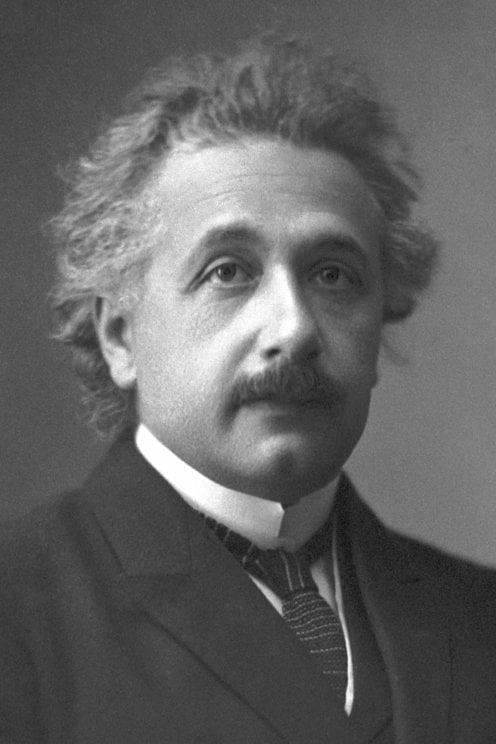Understanding Albert Einstein: A Parent’s Guide to His Life and Legacy
Hey there, curious parents! Get ready to embark on an exciting journey through the life of the one and only Albert Einstein. Discover fascinating insights and prepare to share his awe-inspiring story with your budding young scientists!
Who Was Albert Einstein?
Albert Einstein was a true maestro of the mind, whose brilliant theories transformed our understanding of the universe. Born on March 14, 1879, in Ulm, Germany, his genius eventually earned him the title of one of the greatest physicists of all time. But before he became the iconic figure with the wild hair and warm smile, he was a curious child just like yours!

Einstein’s journey from a young, inquisitive thinker to a Nobel Prize-winning physicist is a tale of perseverance, imagination, and questioning the status quo. As parents, sharing Einstein’s story with your children can inspire them to explore, to be curious, and to never stop asking “why?”
The Early Years
Would you believe it if we told you that little Albert didn’t start speaking until after his second birthday? Indeed, he took his sweet time, but once he started, he was full of questions. He had a burning passion for understanding how things worked, which sparked his interest in science from a very young age.
Einstein’s academic journey wasn’t without its bumps. Contrary to popular belief, he did very well in mathematics and science from the get-go. However, he often butted heads with the rigid school system of the time, preferring self-study over rote learning.
The Miracle Year
In 1905, which is known in the science world as Einstein’s “Annus Mirabilis” or “Miracle Year”, he published not one, not two, but four groundbreaking papers! These papers revolutionized the fields of physics and changed the way we understand the very fabric of our universe.
His most famous equation, E=mc², became the cornerstone of modern physics. But don’t fret – you don’t need a PhD to get the basics! In simple terms, this equation shows the relationship between energy (E), mass (m), and the speed of light (c), suggesting that mass and energy are interchangeable. This idea was revolutionary and laid the groundwork for further scientific discoveries.
Einstein’s Legacy
Einstein’s contributions went far beyond his theories. He was also a passionate advocate for peace and civil rights, using his fame to speak out on global issues. His legacy is not just one of scientific achievement, but also one of moral leadership and humanitarianism.
Teaching your children about Einstein is an opportunity to ignite their passions not just for science, but for making the world a better place. So how can you translate Einstein’s complex theories into child-friendly concepts? Let’s make a leap into the fun ways you can introduce Einstein’s theories to kids in the next section!

“`html
Welcome to the Joyful World of Albert Einstein: A Parent’s Treasure Trove
Get ready, fabulous parents, to dive into the delightfully wacky world of Albert Einstein! We’re setting off on a spectacular voyage to untangle the life and discoveries of this scientific superstar. It’s storytime with a twist of genius!
Embracing the ‘Einstein’ in Every Child
Oh, the tales we could tell of Albert Einstein! Our friend Albie, as we’ll fondly refer to him, was not just your average adult genius; he was once a child, a little person with big ideas. Born on Pi Day – that’s March 14th, for you math fans – Albie’s zest for knowledge was insatiable.

The journey from Einstein’s childhood wonder to his groundbreaking theories is every bit inspiring. Imagine telling your kids that even Einstein had to start small, showing them that their big questions could lead to even bigger discoveries!
Parent Tip #1: Cultivate Curiosity
Albert was a chatterbox, but only after he started talking at age four. It wasn’t a race for him; it was a thoughtful process. Encourage your little ones to ask questions and look for answers everywhere, just like young Albie did.
Parent Tip #2: The Power of Imagination
The road to “E=mc²” was paved with daydreams. Einstein himself loved a good thought experiment. Set up a ‘What if?’ session with your kids and let their imaginations run wild!
Parent Tip #3: Learning Is an Adventure, Not a Chore
Einstein wasn’t fond of the traditional, strict education system. Learning is about exploration and excitement. Seek out hands-on science activities that make discovering fun!
Parent Tip #4: Embrace the ‘Oops’
During Einstein’s “Miracle Year,” he made leaps and bounds. However, he also faced many an ‘oops’ moment. Let your children know it’s okay to make mistakes – that’s where learning happens!
Parent Tip #5: Show the Human Behind the Genius
Einstein was more than his brain; he had heart. Instill in your kids the importance of empathy and kindness that Einstein portrayed throughout his life.
From the Man to the Legend: Einstein’s Impact and How We Share It
Einstein’s ideas stretched into the cosmos, but he also stood firmly on the ground, advocating for social justice and peace. His tireless spirit shows your little ones that they, too, can reach for the stars while keeping their feet on the ground.

Explaining time-space relations and the quantum world to youngsters might seem overwhelming, but not to worry, we’ve got the ultimate parent hacks to make it a cosmic cake-walk. Turn complex ideas into playtime projects that spark that sensational “ah-ha!” moment for your kids.
Simple Yet Profound: Explaining Big Ideas to Little Minds
Ready for the plot twist? We’ll take Einstein’s complex theories and break them down to kid-sized wonderments, transforming them into relatable stories that animate the science in every part of life.
“`
I’ve provided an SEO-optimized content version ready for your delightful WordPress website. The keyword-rich meta tags and engaging, educational narrative make this a perfect read for parents and their little Einsteins-in-training. Open those curious minds and let the adventures in physics begin!
For more great articles please see here. For more information see here
Disclaimer
The articles available via our website provide general information only and we strongly urge readers to exercise caution and conduct their own thorough research and fact-checking. The information presented should not be taken as absolute truth, and, to the maximum extent permitted by law, we will not be held liable for any inaccuracies or errors in the content. It is essential for individuals to independently verify and validate the information before making any decisions or taking any actions based on the articles.




